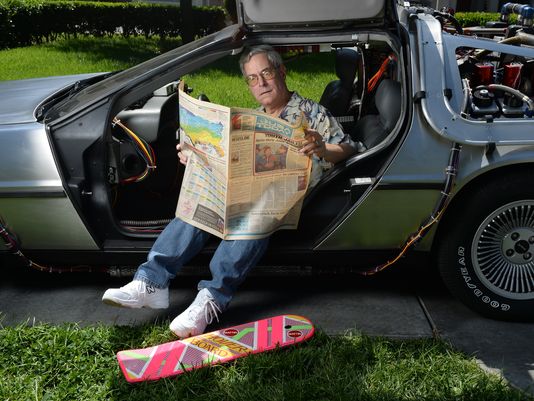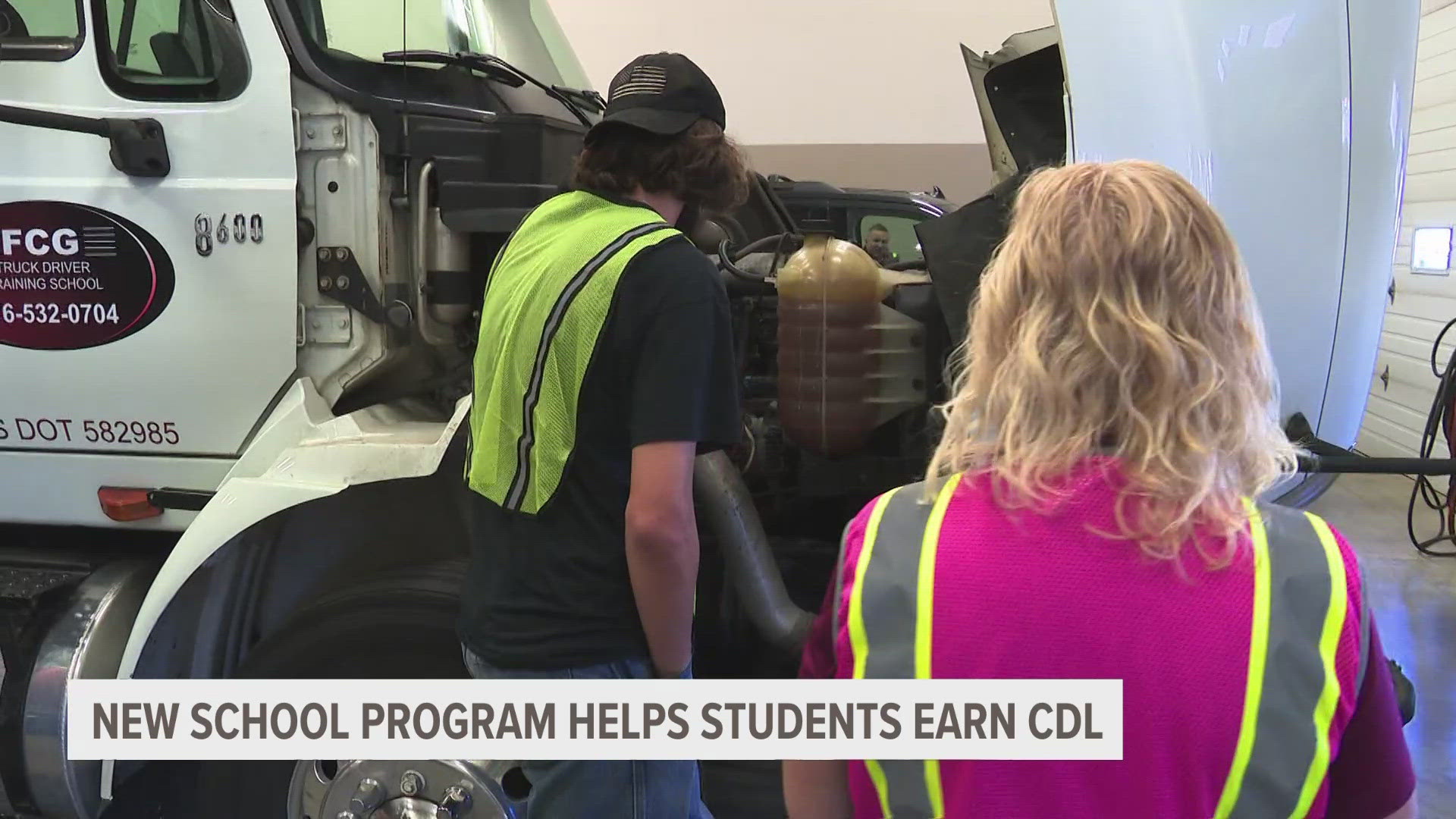![635810908956053576-635810705742926630-XXX-delorean-time-machineBACK-TO-THE-FUTURE-360081 [ID=74375294]](http://cdn.tegna-tv.com/-mm-/3d5569507733ca056af5edaf0a2a8036c559fb13/r=500x375/local/-/media/2015/10/22/WZZM/WZZM/635810908956053576-635810705742926630-XXX-delorean-time-machineBACK-TO-THE-FUTURE-360081.jpg)
Today is the day
that the future becomes the past.
I'm referring to the future presented in our sequel to the 1985 movie, Back to the Future, in which the USA TODAY front page reproduced as the cover of this edition played a key role. When director
We knew we couldn't predict the future accurately (no one ever has), so we decided to make it optimistic and entertaining, focusing on motifs from the original film. The 1955 Cafe became Cafe 80s, the old gas station became a robotic fuel station, the ordinary movie theater became a 3-D Holomax theater, the skateboard chase became the hoverboard chase, and the
We got a lot right. Today, there are numerous 1980s-themed restaurants with 80s arcade games as part of the décor. Robotic gas pumps are being tested in the USA and the
And much of our imagined home technology has become real. Voice-activated and biometric appliances, flat screen televisions that display several channels at once, and home video conferencing are all part of our world. The glasses that the McFly kids are wearing at the dinner table are similar to Google Glasses, versions of which are being developed by Apple, Microsoft and other companies.
We got a lot wrong, too. Thankfully, we don't have fax terminals in every room of the house. We don't have food hydrators, although
The justice system does not work any faster now than it did 30 years ago, and lawyers have definitely not been abolished (nor do we think they're going away any time soon). Sadly, we don't have fusion energy devices, although the technology for converting trash into fuel is advancing rapidly. We completely missed the smartphone, perhaps the single most transformative device in the last 30 years.
And the flying cars? No, we didn't seriously think they'd exist today, but we promised them at the end of our first movie, so we had to keep that promise. Given that people still have plenty of trouble driving in two dimensions, it's probably better that our vehicles remain earthbound for the present.
For this edition, USA TODAY asked me to again predict life 30 years in the future. I hope I'll be around to see what I get right.
In 2045, people will own fewer things. This is already happening as a function of cloud storage for media and the sharing economy. Thanks to Uber and Lyft, and same-day local delivery for almost anything we want to buy, it's easier than ever to function without owning a car, and public self-driving cars in our business districts will accelerate that trend.
Virtual reality will allow people to be comfortable in smaller living spaces and take classes from the very best educators in the world. Everyone will be able to attend classes at "Virtual Harvard," although this will create unemployment in the teaching profession. Virtual reality will also lead to some interesting developments in the sex industry. Who will want to have personal relationships when the perfect virtual sex partner, along with accompanying synchronous stimulation toys, are available 24/7? This will lead to a continuing declining birth rate, at least in the industrialized world.
But that might not be a bad thing, because there will be fewer jobs necessary to run our society. A fast food restaurant will be operated by just two people, and some of that fast food will be soy, processed to taste just like chicken and beef. Cashiers will be a thing of the past because transactions will be made via smartphone, with the meals prepared and packaged by robots. Already, store checkers are being replaced by self checkout, and both they and restaurant waiters will become an endangered species.
Advanced robots will handle almost all factory and warehouse labor, and consumers will manufacture smaller items in their own homes with 3-D printers. By 2045, robotic systems will construct buildings and roads. And the most important job in society will be "repair person."
Turning our garbage into energy will prove more efficient than wind and solar power. We'll have "Google MD," a system using biometrics and data crunching to diagnose common ailments from our own homes — a good thing, given an aging population and a likely shortage of doctors. Improved medical technology, data and treatment will lead to longer lifespans, but our new ability to predict future health based on genetics and bio-analysis will result in some difficult moral dilemmas.
For example, is an 80% chance of pancreatic cancer in a job applicant an acceptable reason to deny employment? And although there will be numerous pro-privacy endeavors, they will ultimately fail because somehow, someone (and thus everyone) will get access to all of that information.
Thus, we'll have less privacy than we have now, but people won't care because, as a defense mechanism, they'll be less judgmental and have less shame.
Cash will still exist because it will be necessary for bribery and other criminal activity. More recreational drugs will be legalized, newer drugs will be developed, and society might encourage habitual criminals and iconoclasts to live in a drug-induced stupor because it will be cheaper than incarceration.
Unfortunately, I don't have an optimistic take on the inevitable crises in entitlement costs, unemployment, student debt and the tenuousness of our global economy. To paraphrase the apocryphal Chinese curse, we will live in interesting times.
Although I still don't expect flying cars, there will be hoverboard parks, similar to today's skateparks.
Finally, the people of 2045 will be nostalgic about the simpler life of 30 years ago. They'll wish for a DeLorean Time Machine so they can forget their troubles by visiting that wonderful year, 2015.
Oh, and one more thing: The Cubs will win the 2045 World Series.


